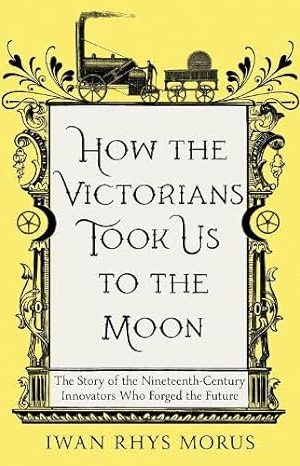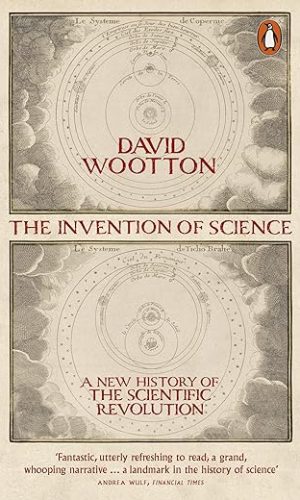History of Science
-
How the Victorians Took Us to the Moon: The Story of the Nineteenth-Century Innovators Who Forged the Future
‘[An] insightful analysis of 19th-century futurism … Morus’s account is as much a cautionary tale as a flag-waving celebration.’ – DUNCAN BELL, NEW STATESMAN
‘[How the Victorians Took Us to the Moon] rattles thrillingly through such developments as the Transatlantic telegraph cable, the steam locomotive and electric power and recalls the excitable predictions of the fiction of the time.’ KATY GUEST, THE GUARDIAN
‘Excellent … A terrific insight into why the Victorian era was a golden age of engineering.’ – NICK SMITH, ENGINEERING AND TECHNOLOGY MAGAZINE
By the end of the Victorian era, the world had changed irrevocably. The speed of the technological development brought about between 1800 and 1900 was completely unprecedented in human history. And as the Victorians looked to the skies and beyond as the next frontier to be explored and conquered, they were inventing, shaping and moulding the very idea of the future.
To get us to this future, the Victorians created a new way of ordering and transforming nature, built on grand designs and the mass-mobilisation of the resources of Empire – and they revolutionised science in the process.
In this rich and absorbing book, distinguished historian of science Iwan Rhys Morus tells the story of how this future was made. From Charles Babbage’s dream of mechanising mathematics to Isambard Kingdom Brunel’s tunnel beneath the Thames, from George Cayley’s fantasies of powered flight to Nikola Tesla’s visions of an electrical world, this is a story of towering personalities, clashing ambitions, furious rivalries and conflicting cultures – a vibrant tapestry of remarkable lives that transformed the world and ultimately took us to the Moon.
Read more
£10.60£11.40 -
The Invention of Science: A New History of the Scientific Revolution
We live in a world made by science. How and when did this happen? This book tells the story of the extraordinary intellectual and cultural revolution that gave birth to modern science, and mounts a major challenge to the prevailing orthodoxy of its history.
Before 1492 it was assumed that all significant knowledge was already available; there was no concept of progress; people looked for understanding to the past not the future. This book argues that the discovery of America demonstrated that new knowledge was possible: indeed it introduced the very concept of ‘discovery’, and opened the way to the invention of science.
The first crucial discovery was Tycho Brahe’s nova of 1572: proof that there could be change in the heavens. The telescope (1610) rendered the old astronomy obsolete. Torricelli’s experiment with the vacuum (1643) led directly to the triumph of the experimental method in the Royal Society of Boyle and Newton. By 1750 Newtonianism was being celebrated throughout Europe.
The new science did not consist simply of new discoveries, or new methods. It relied on a new understanding of what knowledge might be, and with this came a new language: discovery, progress, facts, experiments, hypotheses, theories, laws of nature – almost all these terms existed before 1492, but their meanings were radically transformed so they became tools with which to think scientifically. We all now speak this language of science, which was invented during the Scientific Revolution.
The new culture had its martyrs (Bruno, Galileo), its heroes (Kepler, Boyle), its propagandists (Voltaire, Diderot), and its patient labourers (Gilbert, Hooke). It led to a new rationalism, killing off alchemy, astrology, and belief in witchcraft. It led to the invention of the steam engine and to the first Industrial Revolution. David Wootton’s landmark book changes our understanding of how this great transformation came about, and of what science is.
Read more
£14.70£18.00


